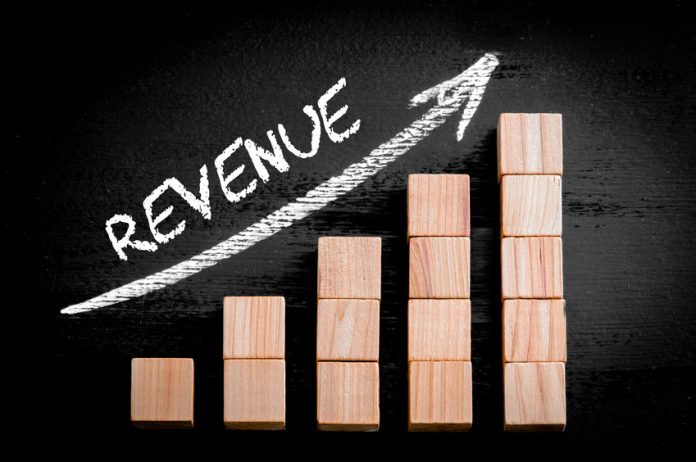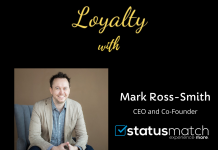
How hotels use data to drive new revenue
In 2017, it’s clear that the hospitality industry needs to prepare for even more disruptions that will unfold over the coming year. Hotels can use data to remain at the forefront. Airbnb, OTAs, start-ups, big data companies and loyalty program changes will remain the focal points to stay across this year.
As a hotel digital or revenue manager, you could get caught up in the hype, continue the passive trend of waiting for another player to make a bold move, and then take 18 months to ‘assess the opportunity.’
We’ve all seen it, and it’s time someone said it – hotels suck at revenue innovation.
In the spirit of the new year, I’ve put together simple, actionable list hotels can take to improve the guest experience, create new levels of personalization, and generate new revenue in the process.
Sound good? Well, keep reading.
The secret to understanding what travellers really want is hiding within your existing dark data. Unlocking these insights is where the magic happens.
Here are a few steps your hotel can take right now to start boosting revenues using data and analytical insight:
1. Improve digital communication
Your hotel sends regular email communication to previous guests, right? What intelligence is being collected around this communication?
At very least, in addition to standard metrics, you should be collecting, and acting on:-
- Where in the world is this customer, and what device are they using? (Are they at home? In the air? On mobile or tablet?) These essential data points are highly valuable in how your guests will respond to your communication.
- If this guest has previously paid full price for a suite or premium room why are you sending an email with ‘book direct for the best rate’?
- Is the guest part of your loyalty program? Would they have qualified for status if they were a member?
- Capture data on opens, clicks, and forwarding. This data allows for creating a structured network of which guests know other guests and where they interact with emails (for example, maybe 90% of emails are opened in airline lounges).
2. Not every guest wants the lowest rate.
In fact, chances are if your property is at least 4-star, many guests will take a value-add instead of a price discount. The challenge for you, as a hotel is to learn how to identify which customers are willing to pay more and which are not.
There are data-feeds hotels can tap into which provide real-time information on how much a guest would be prepared to pay for a room.
Keeping mind the rates you set at the hotel are exactly that – your rates. They have little meaning to a potential guest, and most certainly don’t take their circumstances into consideration. Would you try and sell a $200 or $2000 room, to a billionaire? Chances are, your hotel has no idea how much a guest would be willing to spend. Time to get savvy and invest in data intelligence tools.
3. Plug into last-minute booking app Intelligence
I can hear the cries of “But our brand doesn’t allow it,” or “it cheapens our brand/product” or “it’s not in our revenue management strategy.”
This is all total BS. Your brand may be part of the problem!
Let me explain.
Last-minute booking app companies run slick operations. They are not billion dollar companies with thousands of employees in cushy jobs which have largely remained unchanged for the past 20 years. This means they have no baggage, are agile players and continue to push the innovation envelope, which, is for your benefit.
These app companies hold more data about potential guests, market intelligence on other hotels in the area, and more insight on who and why guests are booking rooms than your brand.com does. How can this help your hotel generate revenue?
Those last few rooms you’re trying to sell each night, what if, they could be sold only to a guest who would never book direct? What if this customer was spending $10,000 a year at the hotel next door – would you want a slice of this guest’s share of wallet? Last minute booking app intelligence can provide significant value to your hotel revenue management strategy.
Major chains don’t permit individual hotels to be part of these booking channels, in part, because the chains themselves don’t know how to use big data to drive behavioural change or provide any type of meaningful actions you can take at a hotel level. Fundamentally, they’re depriving you of new revenue and new guests in order to justify their brand fees. Some hotel owners, however, don’t buy into this.
Start a conversation with a last-minute booking company.
4. Identify patterns in guest activity
Probably one of the simplest, yet often overlooked approaches to analytics 101.
- Identify your top 10% of customers who are not on corporate contracts. Export the list with full profile reservation history.
- Hire a data analyst, or try your hand at a business intelligence tool such as Microsoft Power BI (free).
- Look for relationships and similarities in the data which could provide meaningful insight. Do all these guests book through Expedia? Do they all travel with families? All of them are late-night check-ins? When did they make the reservation? Do they use debit cards instead of high-end premium credit cards? Be creative – there are 100’s of data points you can sift through to ask the right questions.
- Identify a trend and focus guest acquisition in this area. The data may not align with your gut-feeling, but that is why it’s called data-driven marketing!
5. Ask the guest for their frequent flyer card so that they can earn extra miles.
Let me guess; you have some stupid policy about only awarding frequent flyer miles on full rack rates? Newsflash: This could be costing you more than any perceived savings!
Ask for the guest’s physical frequent flyer card upon check-in. While making a note of the airline loyalty program, name, and membership number – also note the elite status level and expiration date. This information is intelligence gold. It’s your hotels’ golden ticket to driving new purchase behaviour because you know this guest has a high propensity for earning miles from that airline’s program.
Imagine this guest is American Airlines Platinum member.
Next time this guest receives an email from your hotel (see point #1 above re communication), instead of “Free breakfast on your next stay,” try “Extra perks for AA Platinum members on your next stay.”
The points will cost you less, and you have the opportunity to up-sell them into breakfast.
While these strategies are only the tip of the iceberg, I hope they can provide you with fresh ideas and ways your hotel can begin to use data intelligence to improve the overall guest experience and drive economic outcomes for your property in the process.
Even if your hotel enjoys high year-round occupancy, these key points will drive new revenue which otherwise would never exist. Think of it as ancillary revenue on steroids.
For more advanced strategies on leveraging guest data to drive revenue, I recommend reading ‘How Hotels Can Use Big Data To Drive Revenue‘
























